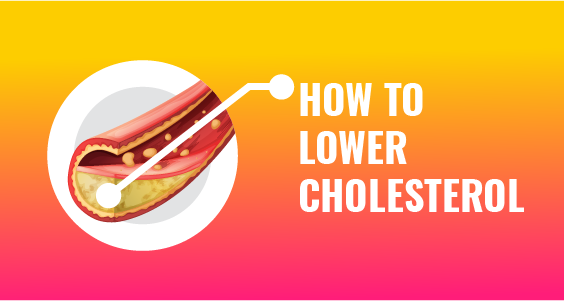What is Cholesterol?
To function effectively, your body requires some cholesterol. However, too much in your blood can adhere to the artery walls and constrict or even block them. You run the risk of developing coronary artery disease and other heart disorders.
In a class of proteins known as lipoproteins, cholesterol moves through the blood. LDL, one kind, is referred to as the "bad" cholesterol. The accumulation of cholesterol in your arteries is caused by a high LDL level. The "good" cholesterol is frequently referred to as another kind, HDL. It transports cholesterol back to your liver from other places in your body. The cholesterol is then eliminated from your body by your liver.
You can take action to increase your HDL (good cholesterol) and decrease your LDL (bad cholesterol). You can reduce your chance of developing heart illnesses by maintaining normal cholesterol levels.
What medications are used to treat high cholesterol?
Modifying one's lifestyle and using drugs are the primary therapies for high cholesterol.
altering one's way of life to decrease cholesterol
Changing your lifestyle to a heart-healthy one can help you regulate or reduce cholesterol.
eating for a healthy heart
Your intake of saturated and trans fats is restricted by a heart-healthy diet. It advises consuming no more calories than necessary to maintain a healthy weight and prevent weight gain. It encourages you to select a range of nutrient-dense foods, such as fresh produce, whole grains, lean meats, and fruits. The Therapeutic Lifestyle Changes diet and the DASH diet are two examples of eating programs that help decrease cholesterol.
Weight Control.
Losing weight can assist in lowering your LDL (bad) cholesterol if you are overweight. For those who have metabolic syndrome, this is very crucial. High triglyceride levels, low HDL (good) cholesterol, and being overweight with a big waist measurement are among the risk factors for metabolic syndrome (more than 40 inches for men and more than 35 inches for women).
Physical exercise.
Everyone needs to exercise regularly (30 minutes on most, if not all, days).
Controlling stress. According to research, chronic stress has been linked to an increase in LDL cholesterol and a decrease in HDL cholesterol.
Giving up smoking.
Your HDL cholesterol might increase if you stop smoking. Having more HDL can help decrease your LDL cholesterol because HDL helps eliminate LDL cholesterol from your arteries.
drugs for lowering cholesterol
Making lifestyle modifications alone does not sufficiently decrease cholesterol for some people. Additionally, they could require medication. Drugs that decrease cholesterol come in a variety of forms. They have various mechanisms of action and potential adverse effects. Inquire with your doctor about the best medication for you.
You must continue making lifestyle modifications even if you take medication to decrease cholesterol.
To decrease cholesterol, use lipoprotein apheresis.
High cholesterol that is inherited is known as familial hypercholesterolemia (FH). Lipoprotein apheresis is a therapy that certain FH patients may get. A filtration device takes LDL cholesterol out of the blood during this therapy. The remaining blood is then given back to the user by the machine.
cholesterol-lowering supplements
Some businesses market supplements that, according to them, help decrease cholesterol. Numerous dietary supplements have been researched, including red yeast rice, flaxseed, and garlic. There isn't enough proof yet to say that they work to decrease cholesterol levels. Additionally, there is a chance that supplements will interact negatively with medications. Before ingesting any supplements, be sure to see your doctor first.







0 Comments